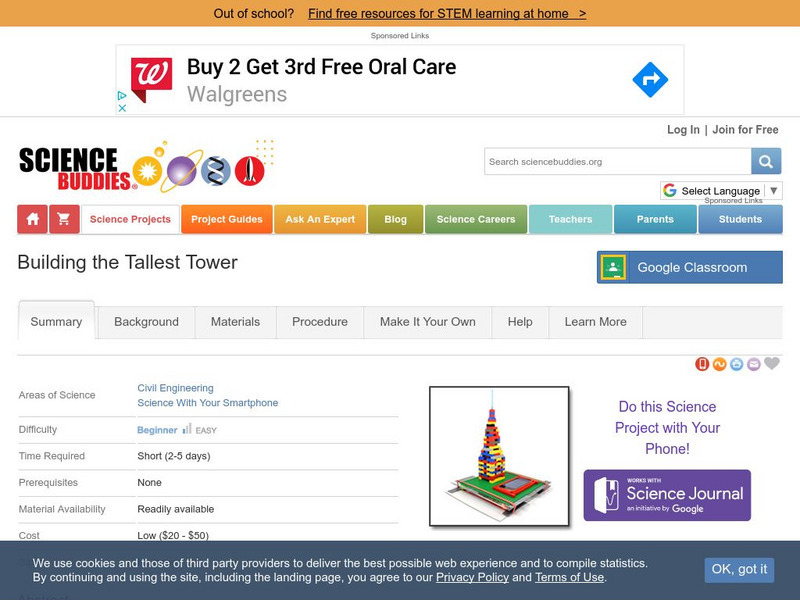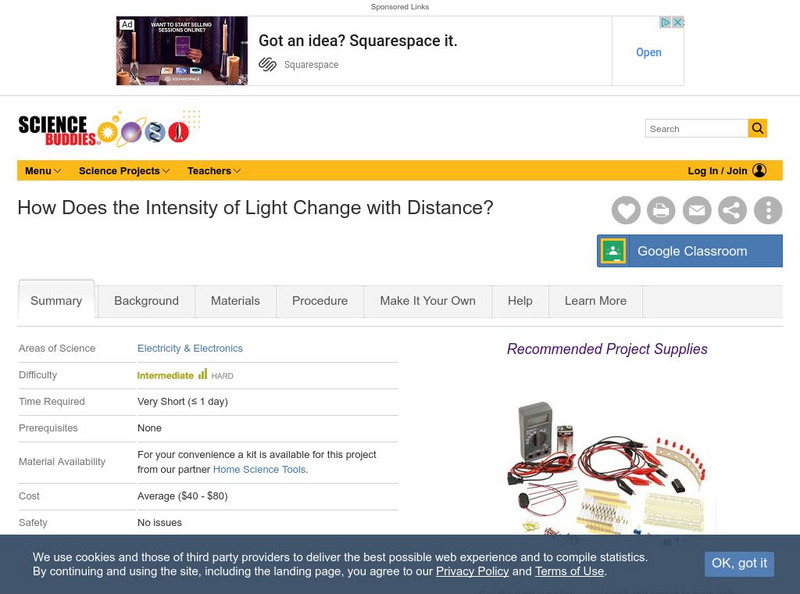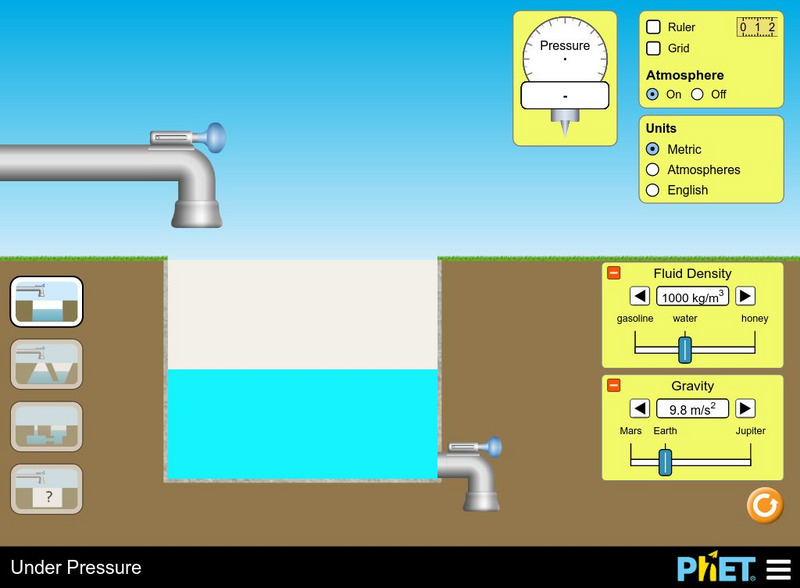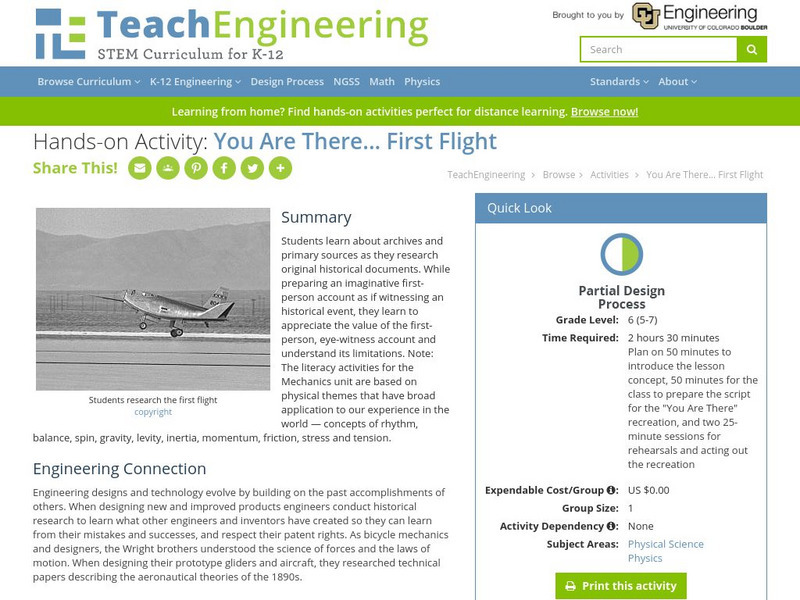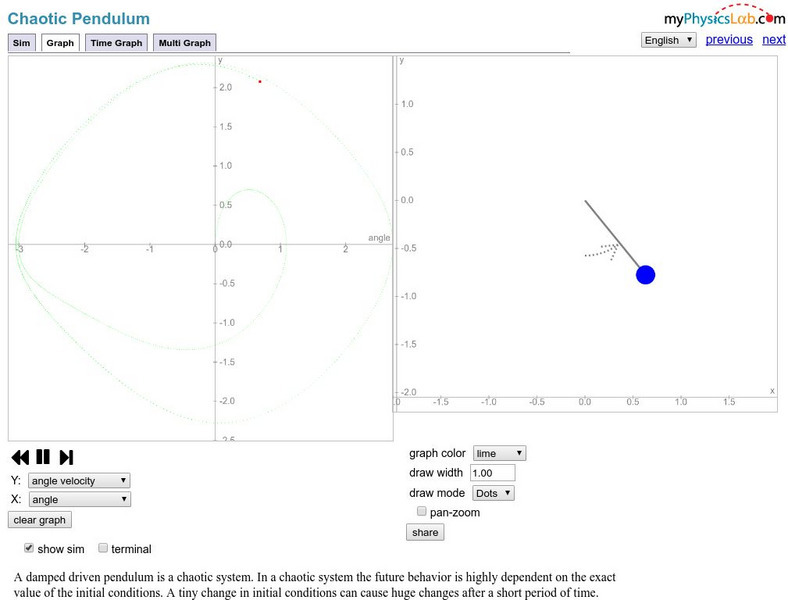TeachEngineering
Teach Engineering: Dams
Through eight lessons, students are introduced to many facets of dams, including their basic components, the common types (all designed to resist strong forces), their primary benefits (electricity generation, water supply, flood...
TeachEngineering
Teach Engineering: Into the Swing of Things
Students learn the basic properties of periodic and harmonic motion, and how the rearrangement of the simple pendulum equation can be used to solve for gravitational acceleration, pendulum length, and gravity. At lesson end, students are...
Science Buddies
Science Buddies: Building the Tallest Tower
Skyscrapers are impressive structures. What does it take to design a building so tall? Engineers use strong materials and innovative design to push the limits of gravity. In this experiment you will use LEGO components, rubber balls, and...
Science Buddies
Science Buddies: How Does the Intensity of Light Change With Distance?
How far would you have to travel so that the light of the full sun would provide "daylight" no brighter than twilight on Earth? This project describes a method to verify the inverse square law: how light, sound, electrical signals, and...
University of Colorado
University of Colorado: Ph Et Interactive Simulations: Under Pressure
Students studying pressure will better understand its concepts with this virtual experiment that tests how pressure changes in air and water as the fluids, gravity, container shape, and volume changes.
TeachEngineering
Teach Engineering: You Are There, First Flight
Students learn about archives and primary sources as they research original historical documents. While preparing an imaginative first-person account as if witnessing an historical event, they learn to appreciate the value of the...
TeachEngineering
Teach Engineering: Spin Me a Story
In a spin-off to studying about angular momentum, students use basic methods of comparative mythology to consider why spinning and weaving are common motifs in creation myths and folktales. Note: The literacy activities for the Mechanics...
Science and Mathematics Initiative for Learning Enhancement (SMILE)
Smile: The Center of Mass
This site from the Illinois Institute of Technology provides a lab activity in which students determine the location of the center of mass of an irregularly shaped object. Observations are related to the balancing point of the object....
Other
My Physics Lab: Double Pendulum
Experiment with a double pendulum to see what happens to the oscillation when you change the mass, gravity, or damping. Students can also change the starting position. The site includes equations to help students understand what is...
Other
My Physics Lab: Chaotic Pendulum
Experiment with a damped driven pendulum to see what happens to the oscillation when you change the mass, gravity, or damping. Students can also change the starting position. Site includes equations to help students understand what is...
Other
My Physics Lab: Simple Pendulum
Experiment with a pendulum to see what happens to the oscillation when you change the mass, gravity, or damping. Students can also change the starting position. Site includes equations to help students understand what is happening in the...


